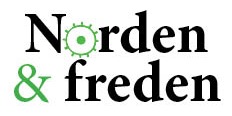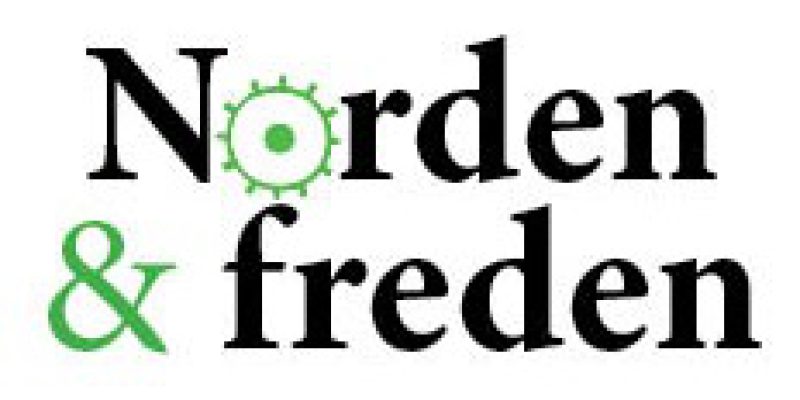 How can the Nordic countries bring about a shift from a military to a civilian perspective and a greater emphasis on peace issues? This question is particularly relevant in a time of increased Nordic cooperation in defense and security policy.
How can the Nordic countries bring about a shift from a military to a civilian perspective and a greater emphasis on peace issues? This question is particularly relevant in a time of increased Nordic cooperation in defense and security policy.
The traditional peace profile
The fact that the Nordic countries have been resolving their conflicts by peaceful means since 1815 and that they commit themselves to cooperation rather than conflict is the reason why the Nordic countries have traditionally been considered a peaceful region and have regarded themselves as such. The Nordic countries also have the reputation of being relatively neutral and humanitarian in their external relations.
There are Nordic experiences that can contribute to peaceful societal development also in a domestic context, for example parliamentary culture, cooperation on many levels, work for equality and a strong civil society. The individual’s potential is developed in parallel with strong public institutions. The Nordic countries accept deviations from the norm, like minority protection regimes, self-government and demilitarized areas. The Nordic model can be interpreted as a desire for peace in the broad sense: social justice and peace within a society and intergovernmental conflict resolution and multilateral cooperation.
If one wants to retain and develop a Nordic identity as a peace region and peace-makers one must dare to critically examine the historical and ongoing social processes. How can we explain the long-standing Nordic cooperation? What are the results of the Nordic cooperation? How come the Nordic countries resolve their differences by peaceful means? What are the opportunities for greater peace efforts in external relations, but also in the Nordic societies and between the countries? It can provide greater understanding of how the Nordic countries can develop in peaceful direction internally, while contributing to the peaceful resolution of conflicts around the world.
Increased focus on security
There is evidence that suggests that the traditional profile is more and more regarded as being outdated. States are now facing major challenges in managing internal tensions in pluralistic and globalized societies. From a foreign policy perspective neutrality and nonalignment are considered as weakened and Nordic participation in military operations abroad has increased. Many of the proposals in the Stoltenberg report (2009) have been realized, and due to the Nordic cooperation many have been pleased about the commitment that arose from the security and defense issues. Even the Strang report (2012) refers to the ongoing military cooperation as a model for closer Nordic cooperation.
Foreign, defense and security cooperation has long existed in the Nordic region, openly or behind the scenes and it is nothing new in itself. That the Nordic countries cooperate in topics like defense equipment and crisis management can be both practical and cost effective and need not necessarily be problematic. But it is important to discuss the context in which such cooperation takes place, the extent to which it is parliamentarily consolidated and supported by the public, as how important it is regarded, how it is related to other priorities, what the consequences might be, and what goals and objectives such cooperation has. If a broad geopolitical offensive means that the Nordic countries change their profile and redistribute their resources, it should be done openly and consciously, with the participation of the citizens who are able to consider more than only one option. One should also discuss what the new security policy discourse implies for the Nordic peace profile in the long term and internationally.
A Nordic peace forum
The Peace Institute wants to create platforms where the Nordic peace and the Nordic peace profile are discussed and is therefore working to bring about an annual Nordic Peace Forum where politicians, diplomats, scholars from different disciplines and civil society representatives from the Nordic countries can come together to discuss the Nordic region’s relation to peace, historically and in the present, in theory and in practice, internally and in external relationships.
The Peace Institute has as a first step initiated the project “The Nordic Region Regarded from a Peace Perspective” (in short; Norden for peace?). The project, which takes place between autumn 2013 and spring 2016, brings together six organizations in the Nordic countries. The network includes the lead partner the Åland Islands Peace Institute as well as the Peace Union of Finland, the Norwegian Peace Council, Peace Alliance Denmark, The Norden Association Sweden and the Institute of International Affairs at the University of Iceland.
The network partners want to create a broad and inclusive discussion on approaches to peace in the Nordic countries separately and within the Nordic co-operation, including in relation to the ongoing densification of security and defense cooperation between the Nordic countries.
The project will also discuss the possibilities to bring about an annual Nordic Peace Forum where politicians, diplomats, scholars from different disciplines and civil society representatives from the Nordic countries can come together to discuss the Nordic region’s relation to peace, historically and in the present, in theory and in practice, internally and in external relationships.



